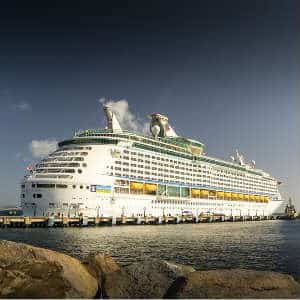It’s easy for most people to picture a cruise ship – we’ve all seen TV and online advertisements which depict a humongous ship sailing through beautiful islands or between glaciers. The fantastic vacations are supposed to provide passengers, who have often paid quite a bit of money, with endless sources of fun, entertainment, and relaxation. What they aren’t supposed to be is dangerous – yet, frequently, they are.
When a vacationer boards their ship, the last thing they are typically worried about is falling over the side. Most cruise ships are several hundred feet tall and with the exception of deluxe rooms which may have a balcony, the sides are typically solid with a few small windows. This means that the few places a person could go overboard are from the top decks.
Even there, the ship is required to have a guardrail of a specific height to prevent someone from stepping out into open air. But even this doesn’t seem to be nearly enough to prevent accidents from taking place.
To make matters worse, in an effort to protect themselves, most cruise lines don’t accurately report the accident. To make it appear like there was no negligence on their part, it’s common for the cruise ship to tell investigators that it appeared that the passenger chose to voluntarily jump from the side of the ship – even if family members know there was no history of mental illness.
If you'd like to read more about cruise ship accidents, visit our page provided by our cruise ship accident attorneys.

But how could someone fall overboard? In the past, survivors and video camera recordings have shown that common causes include:
Unfortunately, due to the large size of the ship, the height of the fall, and the fact that most overboard accidents take place during night means that most victims do not survive. In fact, a review performed of this type of accident from 2000 – 2013, only 16 of the 74 passengers who went into the water survived.
One of the few to survive was Sarah Kirby, who decided to go a Carnival cruise with her fiance and best friend. One evening, while at one of the ship’s bars, a bartender encouraged her and her friend to continue consuming alcoholic drinks. When they finally made it back to their room, she was so tipsy that she fell right over the railing of the balcony. Her friend witnessed the entire event and rushed to inform the crew.
The crew in charge, however, didn’t believe her friend even though she told them that she had seen the woman go over. They ignored her panicked demands to stop and search the waters and instead searched the ship for two hours. Only after wasting hours of precious time did they stop the ship, turn around, and notify the Coast Guard.
Despite having fallen seven stories, hitting a lifeboat on the way down, and spending hours in cold water, Kirby was found alive. However, once back on board, her nightmare continued. The ship’s doctor refused to treat her in any way other than to give her pain meds, despite the fact that she was seriously injured. Ultimately, she would be diagnosed with multiple fractured ribs, a collapsed lung, fractured orbital bones, and hematomas all over her body which caused numerous blood clots.
Then, instead of airlifting her to Miami and they should have, the crew instead diverted the ship to Key West, causing her to wait even longer before receiving medical care.
After making it home, she pursued legal action against them, alleging that the ship had been negligent because the bartender failed to cut her off even after she became visibly intoxicated and for failing to take reasonable action once they had been informed of her accident. Her friend also filed a lawsuit alleging that the ship had intentionally caused her emotional distress before they refused to believe her or help her when she informed them of the accident.
No, a cruise ship accident lawsuit is not always possible, but the majority of victims are eligible. Each case is different and the circumstances leading to their fall are what need to be reviewed. If you or a loved one fell overboard, the best way to determine if you are eligible is to speak with an attorney as soon as possible.
As was previously stated, the majority of all victims don’t survive their accident. They leave behind a group of loved ones who are now not only emotionally distraught but frequently also financially damaged. Not only do they now have unexpected funeral and burial expenses but they may also no longer have the income of a contributing family member.
Again, each case is different, but typically the surviving spouse, children, and parents of the victim are eligible to pursue legal action. This means that they have to opportunity to recover compensation for:
The law regarding cruise ship accidents is complex and it’s always best to work with an experienced attorney who can guide you through the process. Keep in mind, unlike many other personal injury lawsuits, cruise ship lawsuits have a shorter statute of limitations, typically about a year. Once that year has passed, the plaintiffs will likely be unable to file and will lose any chance of obtaining compensation.
Continue reading related articles: